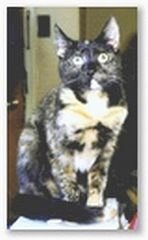I remember a quiet summer morning on my 650cc Triumph with the sun just starting to peep over the horizon. The wind was rushing through my hair and a grin stretched from ear to ear as I took a long gently rounded curve the world to myself. Time vanished.
I remember a fall morning with the trees a riot of color and the shafts of sunbeams piercing through the leaves. Dancing dust particles twinkled like forest sprites as I danced along .
I remember sitting at a table under an old tree all gnarled and providing a mystical music with the gentle breeze whispering through the leaves.
I used to try and capture those magical moments to preserve them for all time. The moment I tried they vanished before I could take a breath.
Happiness is not found through seeking and capturing it to be bottled for a rainy day. It is more like a sneak thief that arrives without a sound and is suddenly there.
Happiness is being at peace with yourself and totally immersed in the wonder of the universe. It only needs for us to make a place in our hearts to hold it for the moment and then let it go. It is in the unexpected moments accepting all that is that it arises naturally and spontaneously.
All we need is to just make room for it to fill us up.










